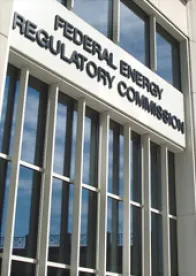Supreme Court Rules that Challenges to Waters of the United States Rule Belong in District Courts
On January 22, 2018, the U.S. Supreme Court held that challenges to the Environmental Protection Agency (EPA) and U.S. Army Corps of Engineers’ (USACE) 2015 final rule redefining jurisdictional “waters of the United States” under the Clean Water Act (CWA), commonly called the “WOTUS Rule,” belong in the district courts, rather than the appellate courts. The controversial WOTUS Rule, issued by the Obama administration, expands federal control over several types of water bodies, and requires federal permits for dredging, filling, or discharging pollution to those water bodies. The rule, which was challenged by a number of parties, has been stayed by the U.S. Court of Appeals for the Sixth Circuit (Sixth Circuit) since October 9, 2015.
The Supreme Court’s order concerns the proper venue for challenges to EPA actions. In general, parties may file challenges to final EPA actions in federal district court. However, the CWA enumerates seven categories of EPA actions for which review lies exclusively in the federal courts of appeals. Immediately after the WOTUS Rule was issued in 2015, the rule was challenged by industry, environmental groups, states, and others in more than two dozen cases in multiple federal district courts and appellate courts. The Government argued that challenges to the WOTUS Rule belonged before the courts of appeals. In February 2016, the Sixth Circuit agreed, determining that the courts of appeals, rather than district courts, had jurisdiction over challenges to the WOTUS Rule.
The Supreme Court reversed this determination, finding that legal challenges to the WOTUS Rule belong in district court. The Court found that the WOTUS Rule does not fall within any of the seven specific provisions of the CWA that grant the courts of appeals exclusive jurisdiction to review. The Court also reasoned that Congress could have chosen to direct all challenges to national rules to the courts of appeals, but instead designated only seven categories of EPA actions for which it wanted immediate circuit court review. Challenges that do not fall into one of these specific categories must be heard by the district court. The Court remanded the cases to the Sixth Circuit with instructions to dismiss them for lack of jurisdiction.
Now that proper jurisdiction has been established, several district court cases that had been put on hold can be restarted. However, the fate of the rule is unclear at this point, as EPA and USACE have proposed to rescind the WOTUS Rule altogether.
Supreme Court Agrees to Consider Washington Culvert Case
On January 12, 2018, the U.S. Supreme Court agreed to review a decision of the U.S. Court of Appeals for the Ninth Circuit (Ninth Circuit) in State of Washington v. United States affirming a lower court ruling requiring the State of Washington to replace or repair stream culverts blocking fish passage in streams throughout the state. The case involves longstanding disputes over the scope of tribal fishing rights under the Stevens Treaties. In the 1850s, a number of Indian tribes in the Pacific Northwest relinquished lands in what is now the State of Washington under the Stevens Treaties, in exchange for a guaranteed right to off-reservation fishing. Litigation concerning the scope of the Tribes’ fishing rights under the Treaties has been ongoing since 1970.
In 2001, the Tribes filed a complaint against Washington State contending that the State had violated, and was continuing to violate, the Treaties by building and maintaining culverts underneath state roads that made it difficult or impossible for fish to move freely through State streams, thereby diminishing salmon runs. The Tribes argued that construction of these culverts has deprived the Tribes of their Treaty-based fishing rights. In 2013, the district court issued a permanent injunction requiring the State to correct its barrier culverts within 17 years, and correct the remainder at the end of their natural life or in the course of independent road construction projects. The Ninth Circuit affirmed the permanent injunction, finding that even if the Treaties did not explicitly guarantee the Tribes access to an adequate supply of fish, the Court would infer that promise to support the purpose of the Treaties. The Court rejected the State’s objections that the injunction was too broad and that the lower court failed to properly consider the significant cost to repair or replace the culverts. The Court’s decision could have far-reaching implications, as the Tribes could attempt to rely on it as a basis to enjoin other activities by the State and others that potentially impact fish and their habitat.
Now that the Supreme Court has accepted the case, the parties will present their briefs on the merits, and the Court will schedule the case for oral argument.
FERC Issues Preliminary Permit to Study Proposed Pumped Storage Project in California
On December 21, 2017, the Federal Energy Regulatory Commission (FERC) issued a preliminary permit to study the feasibility of developing a new pumped storage project within the North Fork Mokelumne River watershed in California. The contested preliminary permit application had been pending for a year and a half. The proposed pumped storage project would utilize reservoirs within the existing FERC-licensed Mokelumne River Project No. 137. The licensee and others argued that the proposed project would negatively impact the existing licensed project and jeopardize compliance with the license in violation of Section 6 of the Federal Power Act (FPA). FERC found that the applicant had stated its intent not to alter the existing licensed facilities, and that operational impacts on the existing project from the proposed pumped storage project were speculative at this stage in the preliminary permit process and did not justify denial of the permit application. Van Ness Feldman represented the developer in this case.
FERC Affirms Order Staying Commencement of Construction Deadline
On January 18, 2018, FERC denied a coalition of conservation groups’ (Conservation Groups) request for rehearing of an order granting Public Utility District No. 1 of Okanogan County’s (Okanogan PUD) request for a two-year stay of the commencement and completion of construction deadlines for the Enloe Dam Project No. 12569. Okanogan PUD had previously been granted the one-time two-year extension of the construction deadlines permitted by Section 13 of the FPA. Had FERC not issued the stay, it would have been required to terminate the license.
The stay was based on the fact that there is ongoing litigation concerning water rights for the proposed project. The Conservation Groups made several arguments: (1) the stay constituted a material license amendment which should have caused FERC to issue a public notice soliciting interventions; (2) FERC violated its regulation requiring applications for time to commence and complete construction to be filed at least three months before the deadline; (3) the stay violated the Administrative Procedures Act (APA); (4) the record does not support a finding that justice requires the stay request; and (5) the stay violated the National Environmental Policy Act’s requirement for FERC to take a “hard look” at the potential environmental consequences of its proposed action.
FERC rejected all of these arguments, holding that: (1) a stay of license without any other change is not a material amendment warranting a public notice requesting comments and interventions; (2) since the stay request was not a license amendment application, the regulation cited by the Conservation Groups did not apply; (3) FERC relied principally on FPA Section 309, which grants broad authority to take actions necessary or appropriate to carry out the provisions of the FPA and that it relied only on the referenced APA provision to establish the standard for acting on stay requests; (4) the Conservation Groups’ arguments that justice is not served by the stay repeat arguments already denied in the order issuing a stay, are anecdotal, and are based on misstatement of previous FERC findings; and (5) there have been no changes of circumstance which require new environmental review because the stay is an administrative order that made no changes to the licensed project.
Briefs Opposing Certiorari filed in Water Transfers Case
On January 19, 2018, the EPA, State of Colorado, and City of New York each filed briefs opposing the Supreme Court’s review of a decision issued by the U.S. Court of Appeals for the Second Circuit (Second Circuit) in January 2017 reinstating EPA’s Water Transfers Rule. The rule, adopted in 2008, codifies EPA’s longstanding policy that water transfers between navigable waters that do not subject the water to an intervening industrial, municipal, or commercial use do not constitute an “addition of pollutants” to navigable waters and are not subject to National Pollutant Discharge Elimination System (NPDES) permits under Section 402 of the CWA. The Second Circuit reversed a decision of the U.S. District Court for the Southern District of New York which vacated the rule on the basis that it was an unreasonable interpretation of the CWA.
The lower court’s decision raised concerns for the hydropower industry because reversal of the rule could have ultimately subjected certain dams involving transfers of water between water bodies to NPDES permitting. The Second Circuit’s decision removed that uncertainty by reinstating the rule. It also expressly preserved longstanding precedent that hydropower dams are generally not subject to NPDES permits, holding that these cases “have no bearing on the outcome of this appeal.” Van Ness Feldman authored an amicus brief for the hydroelectric industry urging the result reached by the Second Circuit.
The Supreme Court is expected to issue its decision whether to hear the case in the near future.




 />i
/>i

